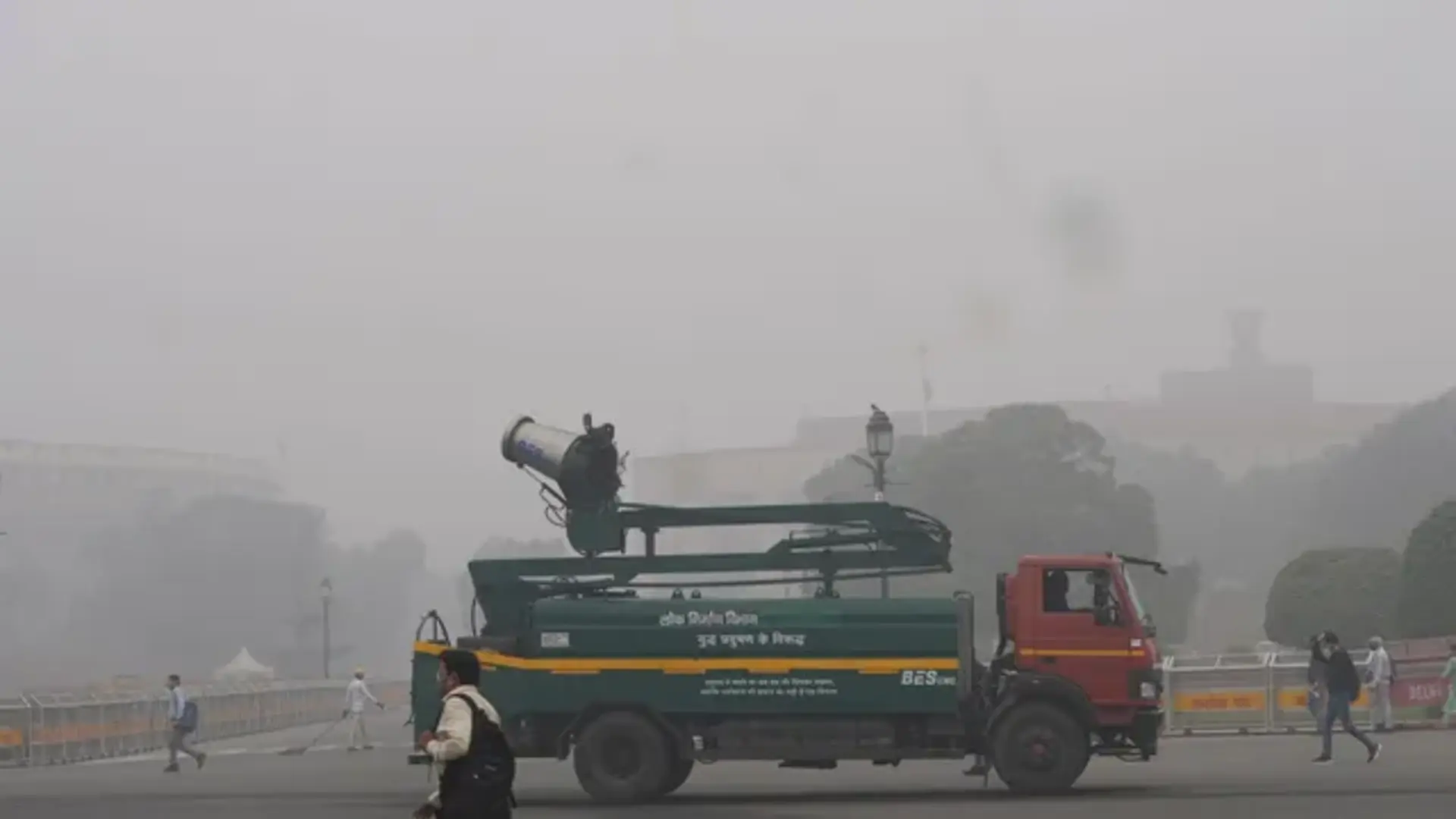The Supreme Court has raised concerns over the implementation of Stage 4 of the Graded Response Action Plan (GRAP) in Delhi-NCR, which is triggered when the Air Quality Index (AQI) reaches the ‘severe-plus’ category. During a hearing on Friday, the Court questioned whether heavy vehicles had been effectively restricted from entering the city, as mandated under GRAP-4.
Court Orders Verification of Truck Ban Enforcement
The apex court criticized the Delhi government and police for their failure to enforce GRAP-4 measures and sought CCTV footage from all 13 major entry points into the city. To ensure compliance, it appointed 13 lawyers to inspect these points and submit reports by Monday, November 25, on whether non-essential heavy vehicles and light commercial vehicles (LCVs) registered outside Delhi are being permitted entry.
The Court also proposed that the Centre deploy police personnel at these checkpoints and emphasized the need for strict adherence to GRAP-4 until air quality significantly improves.
Key Observations and Actions
- GRAP-4 Restrictions: The Court reiterated its directive that restrictions must continue until the AQI drops below 450. The AQI had surged to 485 (‘severe-plus’) on Monday morning, according to data from the Central Pollution Control Board (CPCB).
- Constitutional Duty: The bench, comprising Justices Abhay S. Oka and Augustine George Masih, underscored the constitutional obligation of the Centre and state governments to ensure a pollution-free environment for citizens.
- CAQM Criticism: The Commission for Air Quality Management (CAQM) faced criticism for its delayed implementation of GRAP-3 and GRAP-4 measures. The Court deemed this approach “wrong,” emphasizing that preventive actions must begin as soon as air quality shows signs of worsening, without waiting for further deterioration.
GRAP Overview
The Graded Response Action Plan classifies air quality into four stages:
- Stage I: ‘Poor’ (AQI 201–300)
- Stage II: ‘Very Poor’ (AQI 301–400)
- Stage III: ‘Severe’ (AQI 401–450)
- Stage IV: ‘Severe Plus’ (AQI >450)
Current Status and Next Steps
The Supreme Court will review compliance reports and updates from the appointed lawyers and government agencies in its next hearing on Monday. Until then, GRAP-4 measures, including the ban on non-essential trucks and construction at public projects, will remain in place.
This intervention comes amid mounting public health concerns as Delhi battles not only dense smog but also toxic foam in the Yamuna River, reflecting the city’s ongoing environmental challenges.







